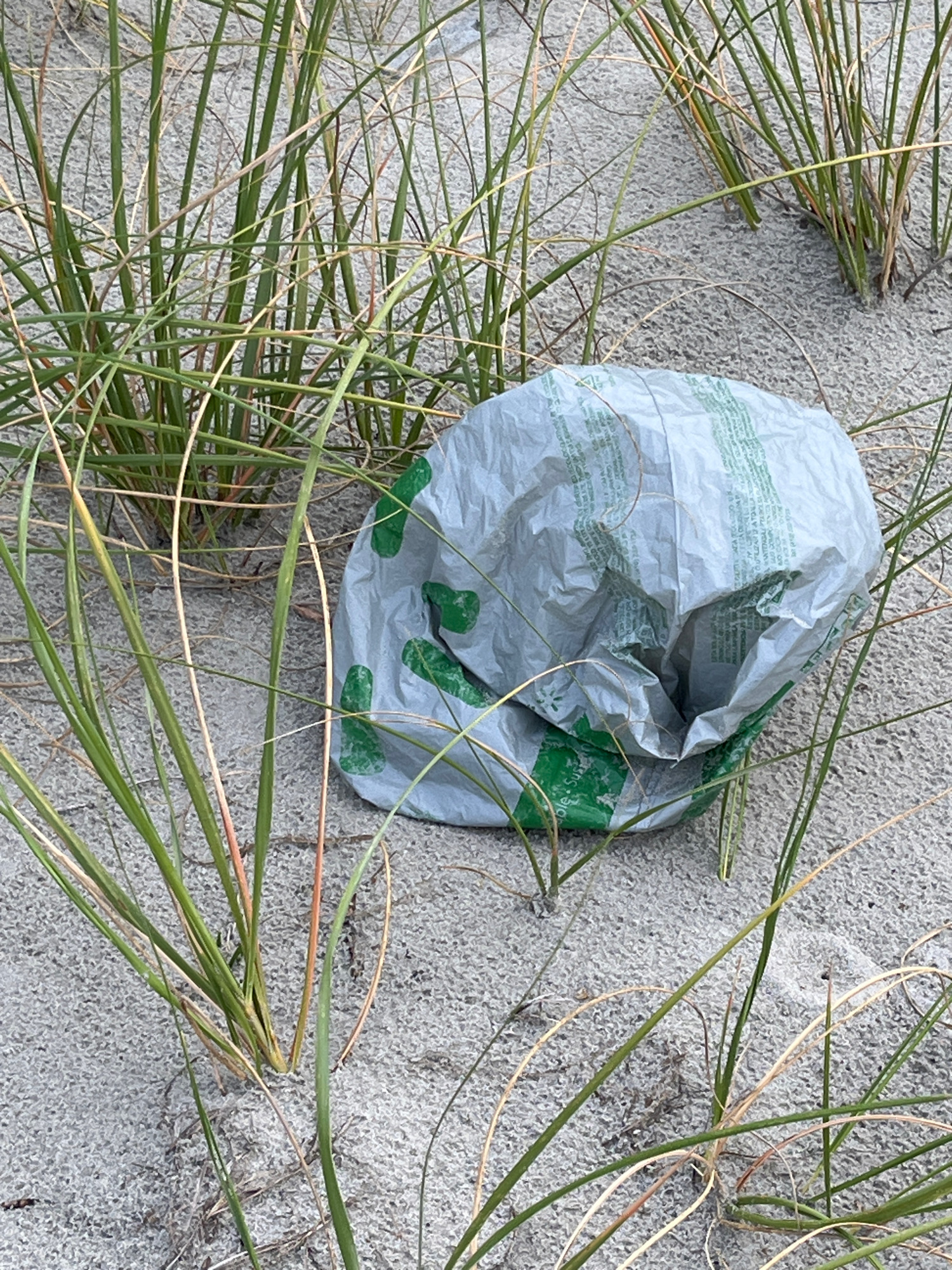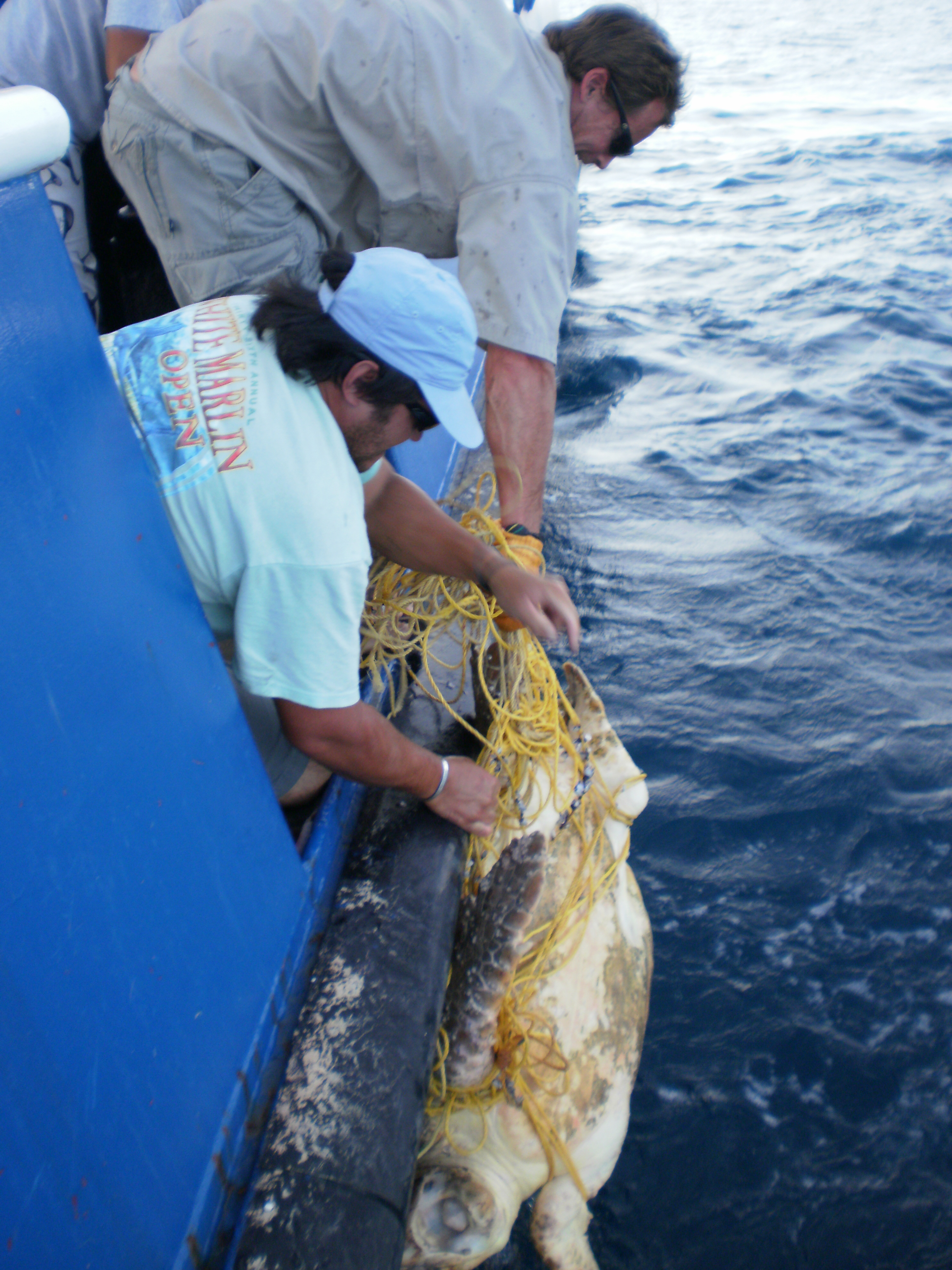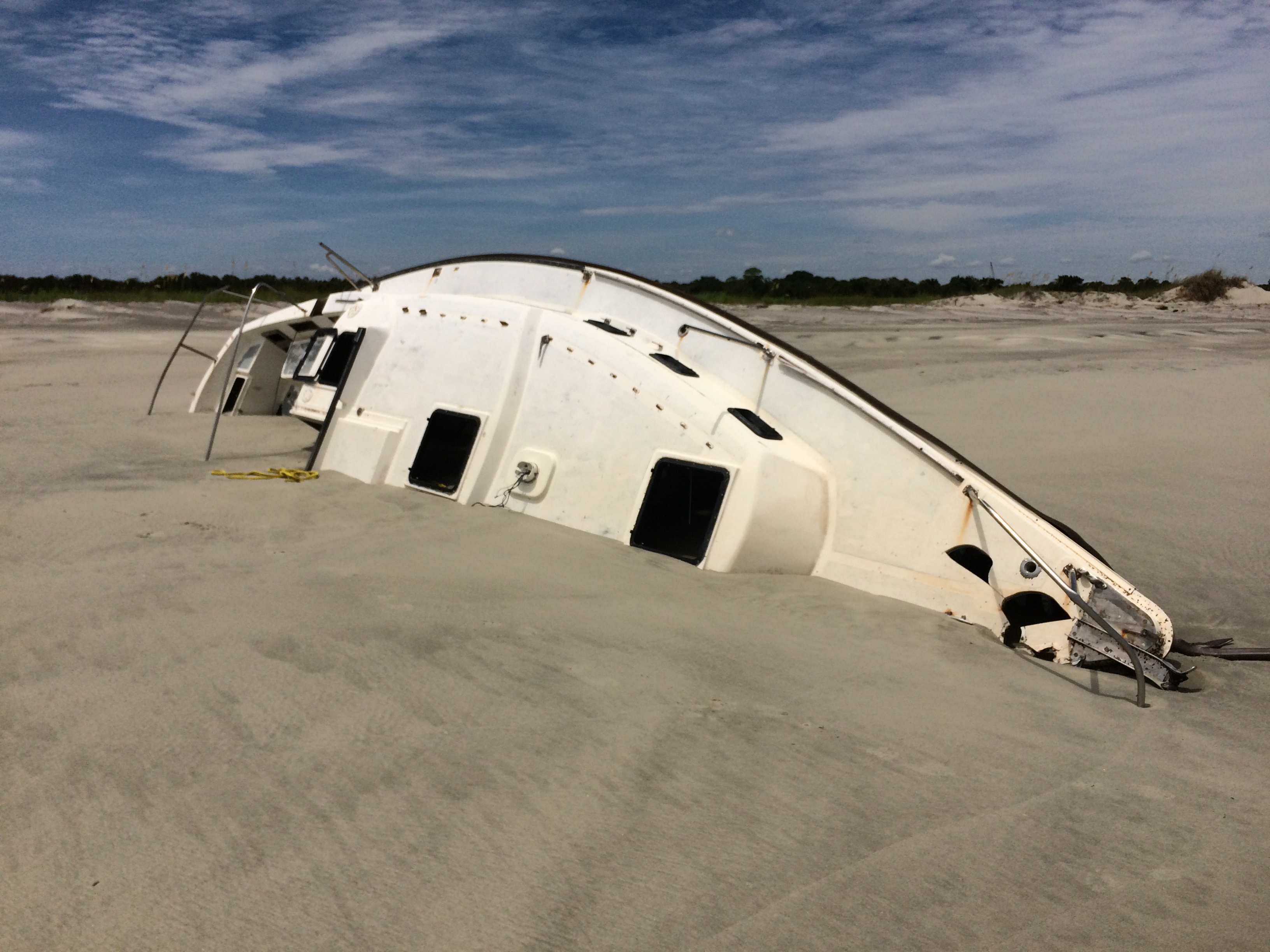Marine debris is any solid, man-made product or material that ends up in our coastal environments. These materials may be deliberately or accidentally released. In either case, marine debris negatively impacts the environment, wildlife, economies, and human health and safety.
Marine debris doesn't always originate on the coast. Storm drains and waterways sweep litter from inland areas, like roadsides and parking lots, to sensitive coastal environments. Improper handling and disposal of trash by waste management, littering, and natural disasters like storms also contribute to marine debris. Closer to the shore, discarded fishing gear and abandoned boats add to the problem.
Common types of marine debris items include:
- Plastics: water bottles, toys, grocery bags, food wrappers, cigarette butts, and more.
- Microplastics: very small (< 5mm in size) pieces of plastic that come from larger plastics breaking down, or materials like microfibers from synthetic clothing and microbeads used in some cosmetics.
- Derelict Fishing Gear: nets, lines, crab pots, and other fishing equipment that has been lost, abandoned, or discarded.
- Abandoned and Derelict Vessels
- Other: glass bottles, metal cans, clothing, construction materials, balloons, and fireworks.

Depending on the material, some debris can take years or even centuries to break down in ocean and coastal waters, while plastic items may never fully degrade in the marine environment.
Marine Debris Impacts
Ecosystems and Economies
Marine animals, including endangered and commercially valuable species, die every year due to marine debris ingestion and entanglement. Sea turtles and dolphins may eat floating plastic bags, mistaking them for jellyfish. Bottle caps and other plastic
fragments have been found in the stomachs of seabirds. Once ingested, plastic debris can cause suffocation, gastric rupture, or gut blockage followed by starvation. Derelict fishing line, nets, hooks, and traps continue to catch animals long after they are lost or abandoned. With no fisherman to reel them in or unhook them, animals are often left injured or dead. This is known as "ghost fishing."
Unnecessary wildlife death harms marine ecosystems and coastal economies that rely on fishing and wildlife viewing.

Recreation and Navigation
Marine debris may be a nuisance that interferes with recreational activities along the coast, while abandoned vessels and derelict fishing gear can cause serious navigational hazards. Costly or irreparable damage to boats occurs when boaters strike submerged vessels, fishing nets become wrapped around propellers, plastic sheeting clogs cooling water intakes, and lost nets or lines entangle vessels.

Public Health
Research suggests that plastic debris is also contaminating our seafood. Learn more about the potential health impacts of microplastics in seafood and current research on this topic from the NOAA Marine Debris Program.
What SCDES OCRM is Doing
SCDES OCRM is working to reduce marine debris through prevention and removal programs. Learn more about Abandoned and Derelict Vessels and report abandoned boats in coastal South Carolina by using SCDES’s MyCoast South Carolina application. Volunteer to help keep South Carolina beaches clean through the Adopt-A-Beach program and report your data in MyCoast South Carolina.
What You Can Do
- Reduce the amount of plastic you take to the beach (bags, food wrappers, utensils, etc.).
- Choose reusable items like "green" grocery bags and water bottles, and limit single-use items.
- When you leave the beach take all toys, garbage, and recycling with you.
- Don't litter, and recycle whenever possible.
- If you smoke, please dispose of cigarette butts in a proper receptacle.
- Organize or participate in a local beach cleanup or river sweep.
- Recycle monofilament fishing line.
- Report or donate old crab traps to SCDNR.
- Report abandoned or derelict boats.

